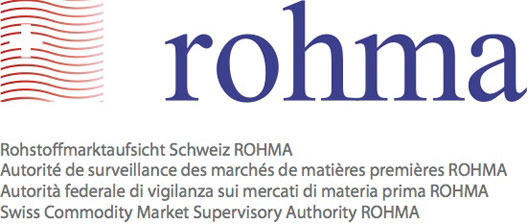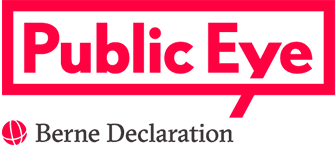Developing countries have limited opportunities to profit financially from their commodities. The taxation of commodity companies, and particularly of subsidiaries or branches of foreign commodity companies, is therefore of central importance.
However, through the widely spread practice of tax base erosion and the shifting of profits to tax havens like Switzerland, commodity companies manage to either reduce or entirely eliminate any taxes due in developing countries. They therefore contribute significantly to the resource curse.
Through the Commodity Act, ROHMA prohibits base erosion and profit shifting practices in the Swiss commodity sector. The regulation will take effect in tax year 2015 and will be communicated in detail to all relevant companies. In light of international developments (including in the framework of the OECD and the G-20), ROHMA assumes that such practices will soon be forbidden in all economic sectors and branches.
It is important to distinguish between two types of tax evasion and aggressive tax avoidance:
Type 1: Companies with a representative office (subsidiary, majority interest or branch) in a developing country.
In the commodities sector this can include both production and processing facilities as well as warehousing and distribution companies. In type 1, usually the tax base of the group's subsidiary is eroded in the developing country, followed subsequently by profit shifting.
Type 2: Companies without their own representation in the developing country, typically trading companies.
Here the reduction or avoidance of tax payments occurs at a non-affiliated company in the developing country (national company or branch of a foreign company). The Swiss company acts, for example, as a trading partner or investor. The profits, which result from the avoided taxes in the developing country, are then divided between these companies. The transfer of this dividend to the Swiss company is done through the usual practices of profit shifting.
The tax avoidance strategies practiced in both types are identical, thus they do not need to be further differentiated. There are also very little differences between the practices of extractive and trading companies. ROHMA prohibits and sanctions the active aggressive tax avoidance seen in type 1 as well as the aiding and abetting seen in type 2.
The prohibition against base erosion and profit shifting
All tax and business practices that are targeted at reducing profits or losses in order to reduce or avoid tax payments are prohibited. In particular, these include (indicative, non-exhaustive list):
a) Pure base erosion
Inflation of costs in the developing country: Here costs that are not associated with a transaction, arising purely at the company level, are inflated in the developing country by the Swiss company. These include, for example, labor costs, or costs for local primary and intermediate products, or fuel, etc.
b) Base erosion and profit shifting
- Classic "transfer pricing" or "trade mispricing": this is where imports are over-invoiced and commodity exports are under-invoiced in trade between a Swiss company and a company in the developing country. This increases the cost and / or avoids profit. Moreover, capital is thereby transferred to Switzerland or other tax havens ("profit shifting").
- Thin capitalization: A Swiss company gives a loan to a company in a developing country at non-standard conditions. The debt reduces the gain and acts as a way to shift profits.
- Service contracts: A company in a developing country acquires services by a Swiss company, such as for marketing (trading) or consulting, for an inflated price. The effect is similar to that of over-invoicing in the classic transfer pricing model.
- Use of patented technologies: a company in a developing country uses technology, for example in mining or oil extraction, for which a Swiss company owns the patent. The license payment for such use reduces the gain made and therefore the tax payment in the developing country, resulting in profit shifting.
ROHMA’s tax department
a) Investigative procedures
ROHMA‘s tax department has extensive investigative resources and expertise. It can search offices without prior notice and seize documents for examination. The detection of targeted tax evasion is achieved using reference prices. An unjustifiable divergence of more than 5% between the recorded amounts for costs, imports, exports of commodities or services and the set ROHMA reference prices is indicative of illegal practices. A detailed circular on reference prices will be published shortly. Where there are no reference prices, as is the case with patents, ROHMA determines the permissible range. Over-complex corporate structures, non-transparent and/or non-justifiable business transactions are also strong indications of prohibited practices.
b) Criminal proceedings
Criminal proceedings may be commenced where successful investigations have been completed. Appropriate sanctions will be applied depending on the nature of the crime, including fines of a minimum of five times the sum of the avoided or evaded taxes. In such cases, ROHMA may additionally conduct an administrative procedure to remove the company’s license.
c) International developments and tax practices
ROHMA follows relevant international developments and the practices of Swiss companies. It thus ensures that its oversight is always up to date so that new avoidance strategies can be identified early and dealt with accordingly.
d) Administrative assistance in tax matters
Tax proceedings in developing countries are only successful if the investigating authorities have access to documents from Switzerland. ROHMA therefore coordinates administrative assistance in tax matters in the commodities sector and uses its investigative skills to support tax proceedings in developing countries as best as possible.
e) Support for developing countries with tax revenue
ROHMA’s experts support the Swiss Agency for Development and Cooperation in programs aimed at improving the tax systems in the commodity sector in developing countries, as well as at expanding the skills of the local tax authorities.



